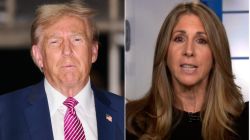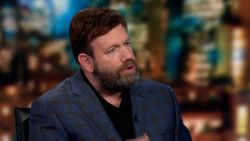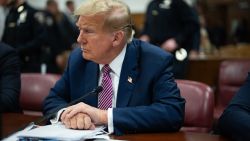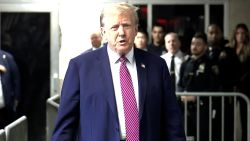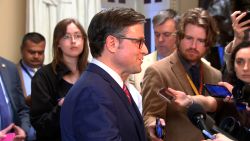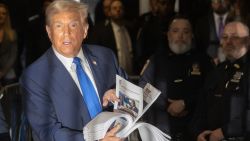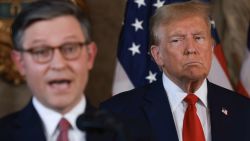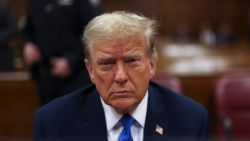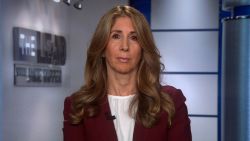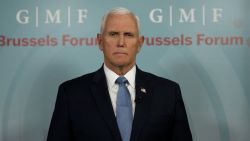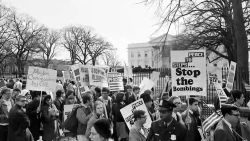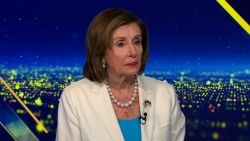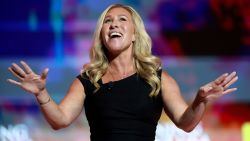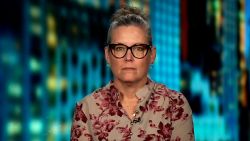President Donald Trump is escalating his threats against the World Health Organization, telling the agency he will permanently pull US funding if it does not “commit to major substantive improvements in the next 30 days.”
Trump’s letter – in which he included a false description of when information about the virus was published in The Lancet, prompting the prestigious medical journal to publicly dispute his claims on Tuesday – is the latest action he’s taken against the WHO following his decision last month to temporarily halt US funding to the group. The agency has at times been criticized for its response to the coronavirus outbreak, though it remains the world’s preeminent global health organization at a time when a fast-moving pandemic has claimed more than 319,000 lives worldwide and largely shut down the global economy amid a search for a vaccine.
Meanwhile, Trump, who has long eschewed global alliances and institutions, has increasingly blamed others, including China and the WHO, amid scrutiny of his own administration’s response to the pandemic.
“It is clear the repeated missteps by you and your organization in responding to the pandemic have been extremely costly for the world. The only way forward for the World Health Organization is if it can actually demonstrate independence from China,” Trump wrote in a letter to WHO Director-General Tedros Adhanom Ghebreyesus that he posted on Twitter late Monday.
“My administration has already started discussions with you on how to reform the organization. But action is needed quickly. We do not have time to waste,” Trump concluded, adding that the US will “reconsider our membership” unless unspecified improvements are made.
Trump in particular assailed the WHO’s stance toward China and lists a series of allegations that the organization overlooked warning signs. The President also accused the WHO of ignoring “credible reports of the virus spreading in Wuhan in early December 2019 or even earlier, including reports from the Lancet medical journal.”
The Lancet, however, said Tuesday it “published no report in December, 2019, referring to a virus or outbreak in Wuhan or anywhere else in China. The first reports the journal published were on January 24, 2020.”
Trump in his letter specifically criticized the WHO for “political gamesmanship” for praising China’s strict domestic travel restrictions while being “inexplicably against my closing of the United States border.” He went on to highlight the WHO’s reaffirmation of “China’s now-debunked claim that the coronavirus could not be transmitted between humans.”
“I cannot allow American taxpayer dollars to continue to finance an organization that, in its present state, is so clearly not serving America’s interests,” the President wrote.
The WHO acknowledged on Tuesday it had received Trump’s letter and was “considering the contents.” Speaking virtually at the agency’s 73rd World Health Assembly, Tedros did not directly respond to Trump but said the organization was committed to “transparency, accountability and continuous improvement.”
Trump’s letter was quickly criticized by numerous experts who have stressed the need for global cooperation.
“I think the idea of punishing the WHO right now probably also ends up punishing us,” CNN Chief Medical Correspondent Dr. Sanjay Gupta said Tuesday morning on “New Day.” “An infection anywhere is an infection everywhere. And the WHO still, in addition to the clinical trials they’re doing, has best vision on these countries around the world.”
European leaders, meanwhile, announced messages for support for the WHO while speaking at the World Health Assembly.
“This pandemic has highlighted our vulnerability and made it clear that we need one another,” Spanish Prime Minister Pedro Sanchez said. “That’s why more than ever we must be united.”
European Commission President Ursula von der Leyen echoed calls for unity. “In times of a global pandemic, international cooperation should be a no-brainer,” von der Leyen said.
WHO has defended response
Critics have questioned whether the WHO is independent enough, given China’s rising wealth and power. They point to the WHO’s effusive praise of China’s response to the coronavirus pandemic. Agency officials have defended their early actions when it came to fighting the coronavirus, noting that much was unknown about the virus back in January.
“When WHO issued its first guidance to countries, it was extremely clear that respiratory precautions should be taken in dealing with patients with this disease, that labs needed to be careful in terms of their precautions and taking samples, because there was a risk that the disease could spread from person to person in those environments,” Dr. Mike Ryan, executive director of the WHO health emergencies program, said at a news conference last month.
“All of our guidance that was out before we did that press conference (on January 14) was about limiting exposure to people and to prevent transmission, particularly in health care settings,” Dr. Maria Van Kerkhove, a WHO infectious diseases epidemiologist, said last month, noting that the WHO’s guidance issued on January 10 and 11 was about respiratory droplets and contact protection.
Ryan said the WHO alerted the world to the new disease on January 5, allowing health systems around the world, including the US, to begin activating their incident management systems that week.
“In the initial reports, in which there were no mention of human to human transmission, was a cluster of atypical pneumonia or pneumonia of unknown origin,” he said then.
Ryan argued that it was “remarkable” that a cluster of cases was detected in Wuhan, China, because there are “millions and millions of cases of atypical pneumonia around the world” each year and “sometimes it’s very difficult to pick out a signal of a cluster of cases” in the middle of flu season.
The agency has said it intends to conduct an “after-action review” of its handling of the crisis.
Pattern of questioning world organizations
Trump’s decision to temporarily withdraw funding from the WHO follows a pattern of skepticism of world organizations that began well before the coronavirus outbreak. The President has questioned the value of the US funding sent to the United Nations, has withdrawn from global climate agreements and lambasted the World Trade Organization – claiming all were ripping off the US.
Throughout his presidency, Trump has criticized China and global institutions for problems plaguing the US, and the coronavirus pandemic has served as another data point in his attacks.
Trump has repeatedly criticized the WHO as “China-centric” and failing to “objectively assess the situation on the ground and to call out China’s lack of transparency” as the coronavirus death toll increases globally.
His tough comments, however, are a far cry from his past statements on the nation and its leader, Xi Jinping, whom Trump praised for his transparency and management of the outbreak in January.
CNN previously reported that the Trump administration is formulating a long-term plan to punish China on multiple fronts for the pandemic.
Multiple sources inside the administration say that there is an appetite to use various tools, including sanctions, canceling US debt obligations and drawing up new trade policies, to make clear to China and the rest of the world where the Trump administration feels responsibility for the pandemic lies.
This story has been updated with additional reaction and background information.
CNN’s Kylie Atwood, Stephen Collinson, Max Ramsay, Vasco Cotovio, Veronica Stracqualursi and Amanda Watts contributed to this report.



